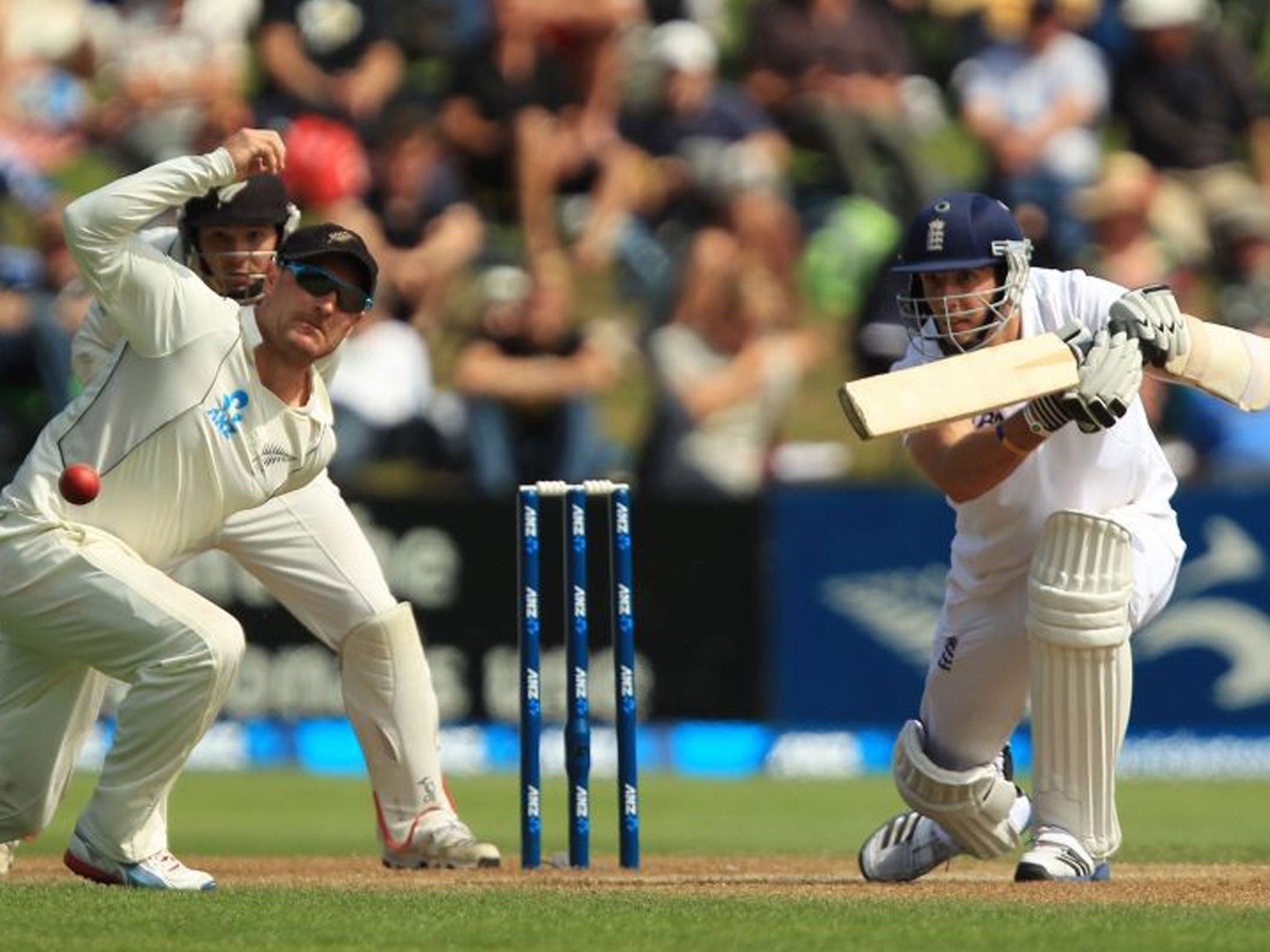Steve Finn celebrates maiden half-century: 'I didn't know he had it in him... nor did he'
England comeback to draw first Test in New Zealand

Your support helps us to tell the story
From reproductive rights to climate change to Big Tech, The Independent is on the ground when the story is developing. Whether it's investigating the financials of Elon Musk's pro-Trump PAC or producing our latest documentary, 'The A Word', which shines a light on the American women fighting for reproductive rights, we know how important it is to parse out the facts from the messaging.
At such a critical moment in US history, we need reporters on the ground. Your donation allows us to keep sending journalists to speak to both sides of the story.
The Independent is trusted by Americans across the entire political spectrum. And unlike many other quality news outlets, we choose not to lock Americans out of our reporting and analysis with paywalls. We believe quality journalism should be available to everyone, paid for by those who can afford it.
Your support makes all the difference.It almost certainly was not in the strategy for the year's events, but England were mightily relieved to escape from Dunedin with a draw. An improbable combination of Nick Compton's first Test century and Steve Finn's maiden half-century in first-class cricket ensured that the embarrassment of defeat was repelled.
Finn's efforts on the last day, when he batted until after tea and faced 203 balls, were astonishing even on a flat pitch. The wine he earned as incentives from team-mates should be on its way to his home any day.
"It was a case of wine from [Alastair] Cook, and a case from Jimmy [Anderson] if I saw it through to lunch and then tea," said Finn. "So I've got four cases of wine coming my way, I think. Those guys all helped me through to have smaller targets, I suppose, because it's easy to get giddy as a lower-order batsman."
Finn's 56 was the ninth half-century by an England nightwatchman. It was a surprise when he entered the arena on the fourth evening because Anderson has been England's nightwatchman on 14 occasions.
"The way Steven applied himself was fantastic," said England's captain, Cook (right). "I certainly didn't know he had that in him and I don't think he did either. It just shows that if you really put your mind to it and you're very disciplined on a flat wicket anyone can make themselves hard to get out. It proved to be a good selection."
Cook acclaimed Compton's century with equal zest. He and everybody else knew that if Compton had followed his first-innings duck with another low score the writing would have been on the selectors' wall.
"Any time you get nought for England, you're under pressure in the second innings," said Cook. "It's great that he's gone on to get a hundred, and I think we'll see him take a big step forward because a hundred as an opening batter for England will give you a huge amount of confidence. Knowing you can perform at this level is a big mental hurdle."
But Cook was not hiding from the plain fact that his side had a hideous start to the match. They batted with appalling judgement on the first day and then failed to contain their opponents as might have been expected, either through poor homework or moderate bowling.
"They put some pressure on us, but if you look at pretty much all the shots, it was poor execution – pretty much, you can describe them as soft dismissals," said Cook. "It's very hard to come back in a game from the situation we found ourselves in. But the character we showed to manage to dig ourselves out of that hole is very pleasing."
For New Zealand it might be viewed as a missed opportunity but after horrific experiences in South Africa, where they were bowled out for 45 in the first Test and lost both matches by an innings, it was also a blessed relief. Their captain, Brendon McCullum, said: "We learned some lessons from South Africa and we wanted to implement them at home against another very good team. This is a big step for us. The challenge is to back it up."
Top scoring English nightwatchmen
Alex Tudor v New Zealand 1999
99* runs off 119 balls
Harold Larwood v Australia 1933
98 runs off 221 balls
Edward Hemmings v Aus 1983
95 runs off 174 balls
Alec Bedser v Australia 1948
79 runs off 183 balls
John Mortimore v India 1964
73* runs off 158 balls
Bruce French v Pakistan 1987
59 runs off 113 balls
Fred Titmus v Australia 1964
56 runs off 143 balls
Steven Finn v New Zealand 2013
56 runs off 203 balls
John Hitch v Australia 1921
51* runs off 72 balls
Join our commenting forum
Join thought-provoking conversations, follow other Independent readers and see their replies
Comments